Mixed news for North East high streets as 22 Peters Bakery shops are saved, but 34 close
Scarborough-based Cooplands snapped up 22 stores from Peters Bakery yesterday, following its Durham-based rival’s collapse into administration back in June.
The deal announced by the administrators KPMG – which also includes Peters’ retail van business and its factory and HQ on the Dragonville Industrial Estate – has saved 208 jobs, which is great news. However, the closure of the 34 remaining stores – listed at the bottom of this post – will leave an unwelcome hole in many North East high streets and shopping precincts, including a lot of smaller and more vulnerable centres such as Birtley and Hebburn.
The move caps a successful few years for Cooplands, as it consistently capitalises on the collapse of weaker rivals. In 2007, it bought 34 of Hull-based Skeltons’ shops, and grew its estate further with the addition of 18 ex-Woodhead Bakery branches in April last year. This latest acquisition will take the company’s store count to nearly 140, though it’s not clear whether the Peters branches will be rebadged under a Cooplands fascia like those of Woodhead and Skeltons before.
While Cooplands and, of course, Greggs both appear to go from strength to strength, 2012 has been a more challenging year for other bakeries in the North East and Yorkshire. Just days after Peters’ collapse in June, for example, Scarborough’s Woodhead Bakery – comprising the parts not acquired by Cooplands a year earlier, and a major supermarket supplier alongside operating its own shops – also fell into administration, with the closure of 11 shops and loss of 100 jobs. Similarly, Woodhead’s sister company, the County Durham-based piemaker Tindale & Stanton, hit the buffers in the same month, but was rescued by four former managers, saving 85 jobs.
At the time of Peters’ collapse, the administrators blamed factors such as the “rising costs of raw materials, energy prices and an increasingly tough retail environment”. However, the first two of those are issues that affect any baker – so, what can we read into the reasons for Peters’ demise, as opposed to the success of Cooplands and, indeed, Greggs?
Offer
Unusually for a retail administration, the quality of Peters’ offer appears not to have been an issue; on the contrary, my impression is that the business had a really good reputation for its products. However, traditional bakery shops focussing on bread and cakes have come under immense pressure from the big supermarkets’ instore bakery operations, which offer customers’ products of comparable quality and freshness as part of their convenient weekly shop.
Against this backdrop, the successful high-street bakers are those that have adapted to the new reality, targeting the fast-food and lunchtime trade that has become Greggs’ staple, or branching out into cafés as Cooplands has.
Scale
In any retail sector – and certainly in bakeries – having scale is important in terms of managing business costs and being able to pass value savings on to the cash-strapped consumer. While Peters Bakery peaked at more than 70 branches, its store count had dwindled to fewer than 60 of late. Cooplands, in contrast, has been moving in the opposite direction – giving it more competitive strength – while Greggs’ stellar growth, to over 1,500 shops and rising, has been well documented.
Locations
Perhaps the biggest factor affecting Peters, however, has been its store locations. With a presence almost entirely in County Durham and Tyne & Wear, the business could hardly have had a worse footprint in terms of setting it up to compete with Greggs.
Cooplands’ store estate, in contrast – covering Leeds (11 shops), Teesside (19), York (9), Scarborough (15), Hull (33), East Yorkshire (10) and Lincolnshire (20), but, until now, not County Durham or Tyneside – has avoided quite so much overlap with Gregg’s North East heartland.
Within the last year, I understand that Peters was quietly marketing some of its shop locations to rivals, but that many of these sites had the specific problem of being very close to Greggs branches. By being able to pick and choose the best locations from the Peters estate, as well as having extra scale and muscle in the marketplace, Cooplands should be well placed to make a go of the shops that it’s acquired – even in the face of the ever-impressive Greggs juggernaut.
22 stores purchased by Cooplands (list supplied by KPMG):
- Stanley
- Consett
- Lanchester
- Durham
- Framwellgate
- Houghton-le-Spring
- Hetton-le-Hole
- Belmont
- Chester-le-Street
- Willington
- Crook
- Washington
- Elvet
- Peterlee
- Acklam
- St Cuthberts
- North Road 2
- Shiney Row
- Southwick
- Carrhouse
- Chilton
- Sherburn.
34 closed stores:
- Aycliffe
- Birtley
- Blackhall
- Blaydon
- Blyth
- Cornforth
- Coxhoe
- Easington Colliery
- Fencehouses
- Ferryhill
- Fishburn
- Gilesgate
- Hebburn
- Hexham
- High Row
- Horden
- Jarrow
- Marton
- Newbiggin Hall
- North Shields
- Richmond
- Sacriston
- Saddler Street
- Seaham
- Sedgefield
- Shotton
- Sunderland
- Thornley
- Trimdon Village
- Union St
- Wallsend
- Wheatley Hill
- Wingate
- Woodhouse.
My retail consultancy business, CannyInsights.com, works with retailers nationwide to improve their stores, customer communications and market knowledge, and can provide bespoke place- and sector-specific market intelligence. For more information, visit www.cannyinsights.com, drop me an email, or give me a call on (0191) 461 0361.

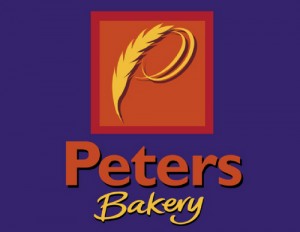
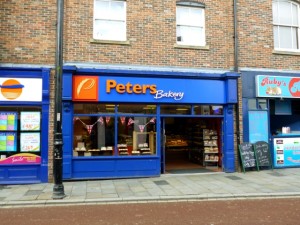
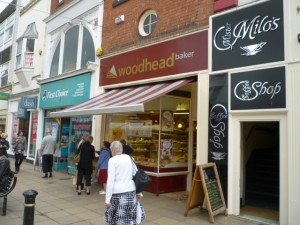
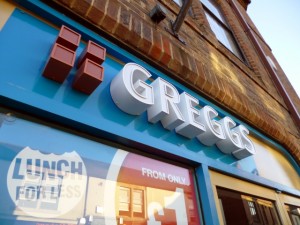
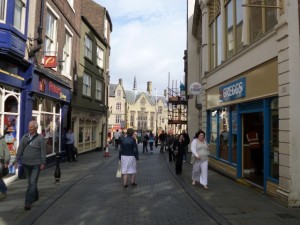
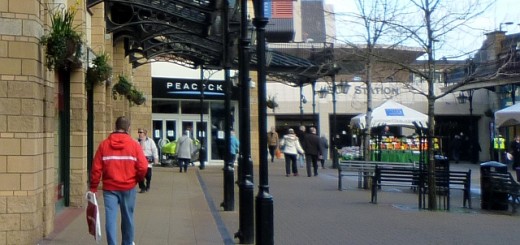
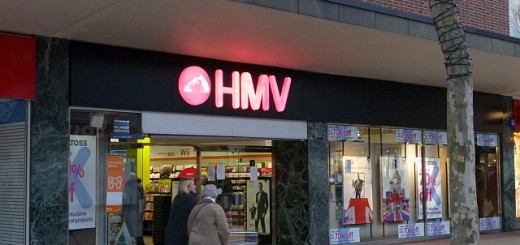
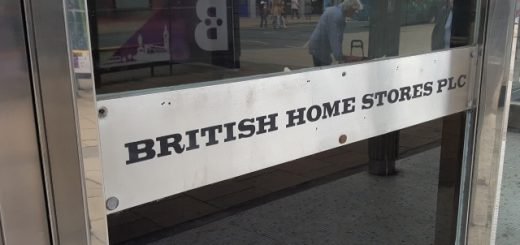



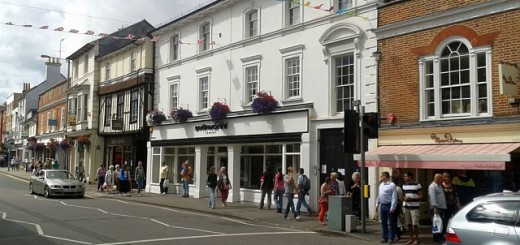
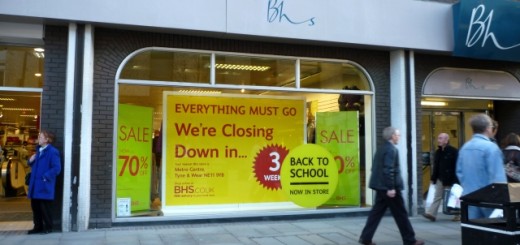
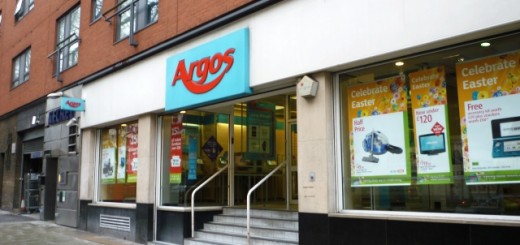
Such a shame a great family baker goes into administration & then finds shops close & workers redundant. I have fond memories of my lunch on a Saturday being a Pasty & a cake from Peters. Then when I was in Comprehensive school it was Peters for dinner a couple of times a week. I’ve never been a huge fan of Greggs products but you have to admire there business plan, as it has been a huge success. Peters problem was they had too many stores close together. choking there business in places. Some of the store closures a surprise such a Coxhoe as it only has a butchers (Coates) which does have a good reputation for Pies etc but not bread & Cakes. I remember when Peters bought out Harrison’s the Bakers & opened Coxhoe, it seemed a busy little shop.The same could be said with Gilsgate. I wouldn’t be at all surprised if Greggs snap them up as they are more vibrant villages. Sacriston, Easington, Fenchouses, Segefield & either 1 of Thornley or Wheatley Hill are potentially good areas & would require a Bakers. But only the figures tell the truth!! I do think Greggs will take up the opportunity however!!